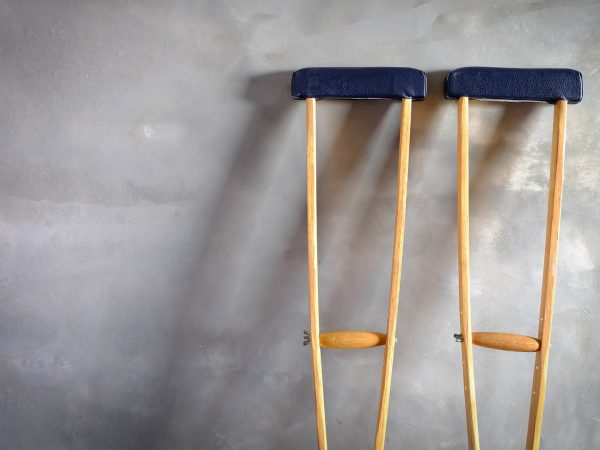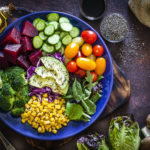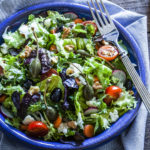Vegetarians’ Bone Health?
I understand that vegetarians and vegans are more likely to break bones than people who eat meat. If true, can you tell me what they can do to protect their bones?
Andrew Weil, M.D. | December 29, 2020

Recent research from the United Kingdom has shown that vegetarians and vegans are at increased risk of bone fractures compared to people who eat meat. The increased risk was nine percent among vegetarians and much higher – 43 percent – among vegans. The findings came from health information on 54,898 people whose average age was 45. Among them, 29,380 ate meat, 8,037 ate fish but no meat, 15,499 were vegetarians, and 1,982 were vegans (no meat, fish, poultry, dairy products, eggs or honey). The researchers followed these people for an average of 18 years to determine their risk of fractures, controlling for sex, physical activity, smoking, alcohol intake, the use of dietary supplements and other factors.
The vegetarians and people who ate fish but no meat had an increased risk for hip fractures of roughly 25 percent. Vegans’ risk for hip fractures was more than twice that of meat eaters, and their risk for leg fractures was 105 percent higher.
Given these findings, University of Oxford nutritional epidemiologist Tammy Y.N. Tong, Ph.D., said it’s important for vegetarians and vegans to have adequate intakes of protein and calcium and recommended that they take supplements if their diets don’t provide enough of these nutrients. She noted that, overall, the risk to vegans seen in the study was relatively small, about an extra 20 bones broken per 1,000 people over 10 years. But Dr. Tong added that the fracture rate is likely to be higher among seniors, who are already more prone to break a hip.
The researchers wrote that previous studies have found that calcium supplements can produce small increases in bone mineral density but added that it isn’t clear whether this improvement is enough to reduce the fracture risk. They also cited a recent meta-analysis of randomized trials showing that a combination of vitamin D and calcium supplementation, but not vitamin D alone, effectively prevented fractures.
Dairy products are one of the best dietary sources of calcium, but many people choose not to eat them or can’t tolerate them because of lactose intolerance or allergy. Other food sources of calcium are canned sardines, dark green vegetables such as broccoli, collard greens and bok choy, as well as tofu and calcium-fortified juices and soy milk.
Here’s some good news from the Oxford study: An earlier investigation including the same participants found that being vegetarian is linked with about a 10 percent lower risk of cancer after 15 years and about a 20 per cent lower rate of heart disease – but also a 20 percent higher risk of a stroke.
Andrew Weil, M.D.
Source:
Tammy Y.N. Tong et al, “Vegetarian and vegan diets and risks of total and site-specific fractures: results from the prospective EPIC-Oxford study,” BMC Medicine November 23, 2020














